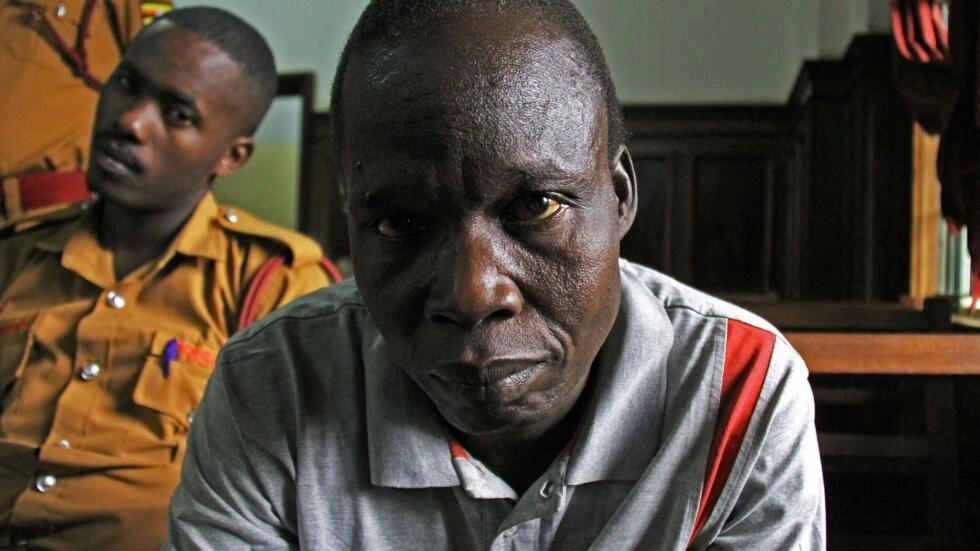Former Lord’s Resistance Army (LRA) rebel commander Thomas Kwoyelo was found guilty of 44 offences, including crimes against humanity, on Tuesday in Uganda’s first trial of an LRA member, marking a historic moment for the East African country.

A Ugandan court on Tuesday found a former commander in the feared Lord’s Resistance Army (LRA) guilty of multiple counts of crimes against humanity after the first such war crimes trial in the East African country.
Thomas Kwoyelo, who was charged for crimes committed during a bloody two-decade LRA rebellion in northern Uganda, had been waiting for years behind bars for a verdict in the landmark case.
“He is found guilty of the 44 offences and hereby convicted,” lead judge Michael Elubu said at the International Crimes Division (ICD) of the high court in the northern city of Gulu.
They included murder, rape, torture, pillaging, abduction and destruction of settlements for internally displaced people, the judge said.
He said Kwoyelo was found not guilty of three counts of murder, and that “31 alternate offences” were dismissed.
Kwoyelo, who was abducted by the LRA at the age of 12, had denied all the charges against him.
A low-level commander in the militia, Kwoyelo was arrested in March 2009 in the Democratic Republic of Congo during a sweep by regional forces against LRA rebels who had fled from Uganda two years earlier.
He was put on trial in July 2011 before the ICD, but was freed two months later on the orders of the Supreme Court, which said he should be released on the same grounds as thousands of other fighters who were granted amnesty after surrendering.
But the prosecution appealed the decision and he was put on trial again, though the case was repeatedly delayed.
The LRA was founded by former altar boy and self-styled prophet Joseph Kony in Uganda in the 1980s with the aim of establishing a regime based on the Ten Commandments.
Its rebellion against President Yoweri Museveni saw more than 100,000 people killed and 60,000 children abducted in a reign of terror that spread from Uganda to Sudan, the DRC and the Central African Republic.
Kony is wanted by the International Criminal Court (ICC) for rape, slavery, mutilation, murder and forcibly recruiting child soldiers.
‘Painfully inadequate accountability’
“Accountability for LRA war victims has been painfully inadequate and opportunities for improvement are increasingly slim, making processes in Uganda all the more important,” Human Rights Watch said in a January statement on the case.
According to court documents, “all attacks by the LRA which took place in Kilak County, Amuru District between 1987 and 2005, the subject of charges in this indictment, were either commanded by him or were carried out with his full knowledge and authority”.
His lawyer Caleb Alaka told AFP in May that Kwoyelo “has been consistent that he is innocent and looking forward to the court ruling”.
After the LRA was driven out of Uganda, it spread across the forests of the DRC, the Central African Republic, South Sudan and Sudan.
In 2021, Dominic Ongwen, a Ugandan child soldier who became a top LRA commander, was sentenced by the ICC to 25 years in prison for war crimes and crimes against humanity.
The civil war effectively ended in 2006 when a peace process was launched, but the LRA’s founder Kony has evaded capture.
The ICD was set up in 2009 by the Ugandan government as part of efforts to implement peace agreements signed the previous year between the Ugandan government and the LRA.
(AFP)




